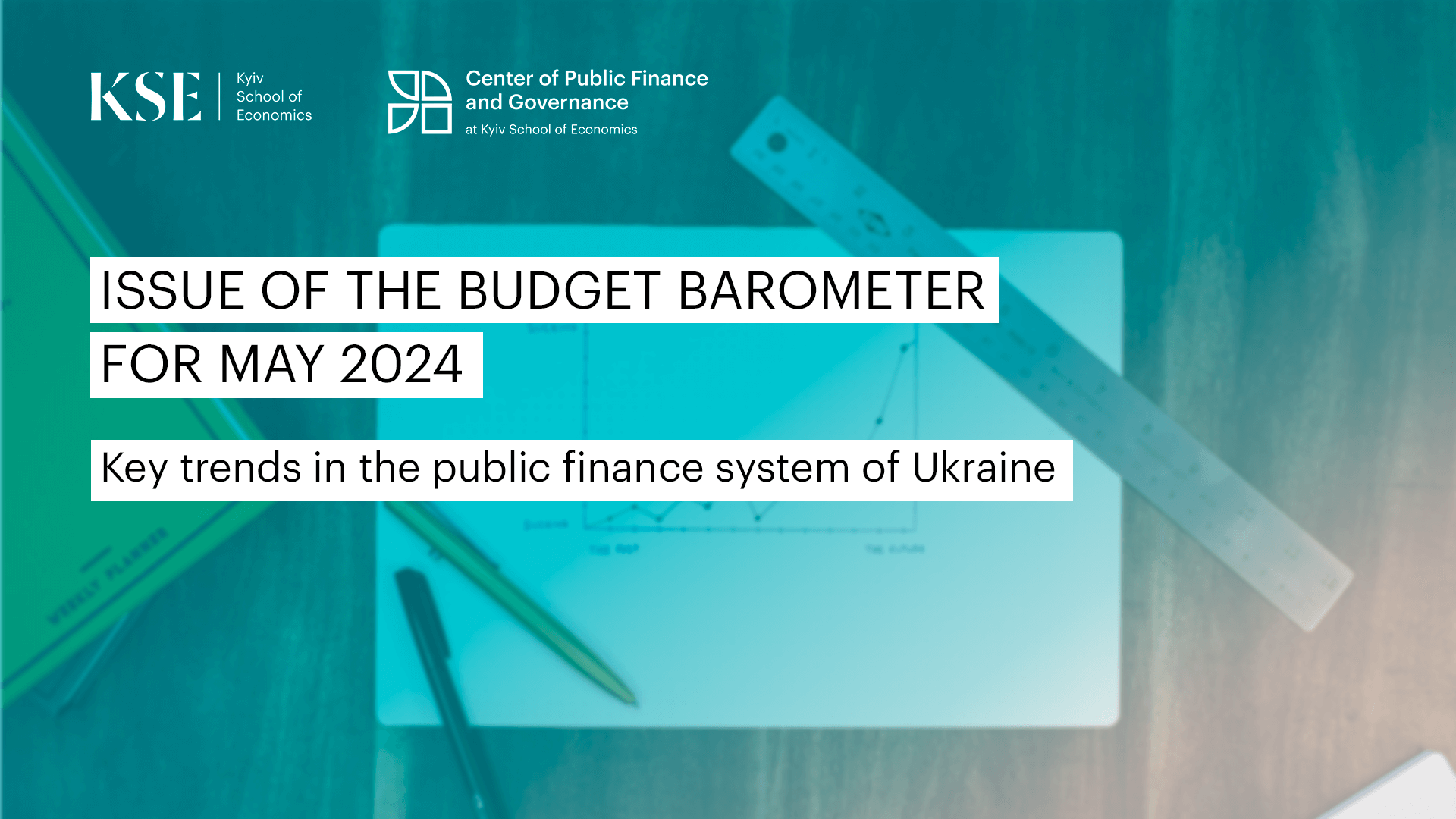- Kyiv School of Economics
- About the School
- News
- Ukraine’s budget in May 2024. What worked, what didn’t, and how much external financial assistance was received — KSE analytical review
Ukraine’s budget in May 2024. What worked, what didn’t, and how much external financial assistance was received — KSE analytical review
20 June 2024

In May, revenues to the general fund of the Ukrainian budget amounted to UAH 151.8 billion, which is 8.7% more than planned. In addition, the government exceeded the tax revenue plan by 7.7%. At the same time, the amount of external financial assistance from partners was the lowest since the beginning of 2024.
This is stated in the May 2024 monthly Budget Barometer from the Center of Public Finance and Governance at the Kyiv School of Economics (KSE).
Actual corporate income tax (ECT) revenues exceeded the expected by 14.1% and amounted to UAH 42.1 billion. This is likely due to the increased tax rate for banks to 25% last year and improved financial results of some state-owned enterprises, such as Naftogaz Group companies, which improved their performance by 40% in 2023.
In addition, revenues from excise tax (+4.9%), taxes on international trade (+5.4%), and import VAT (+13.2%) exceeded the plan.
At the same time, revenues from domestic VAT (-6.9%) and external financial assistance ($20 million) were lower than expected. However, on June 13, 2024, the G7 countries decided to provide Ukraine with a $50 billion loan secured by frozen Russian assets, which will significantly strengthen the country’s financial stability in 2024.
In total, in the first five months of 2024, the state budget received $11.8 billion in foreign aid, including $10.7 billion in external loans and more than $1 billion in grants.
In May, the deficit of the state budget’s general fund was planned at UAH 200.2 billion, while the actual deficit amounted to UAH 157.9 billion, which is 1.3 times less than the planned figure. This was possible due to higher tax revenues and lower expenditures.
In addition, in May, the Ministry of Finance raised UAH 46.2 billion from the placement of domestic government bonds, of which 17.4% (UAH 8.4 billion) were bonds. UAH 4.9 billion (€113.6 million) was raised from bonds denominated in foreign currency.
Experts at the KSE’s Center for Public Finance Analysis note that significant damage to energy infrastructure could negatively affect tax revenues from the most energy-intensive industries.
